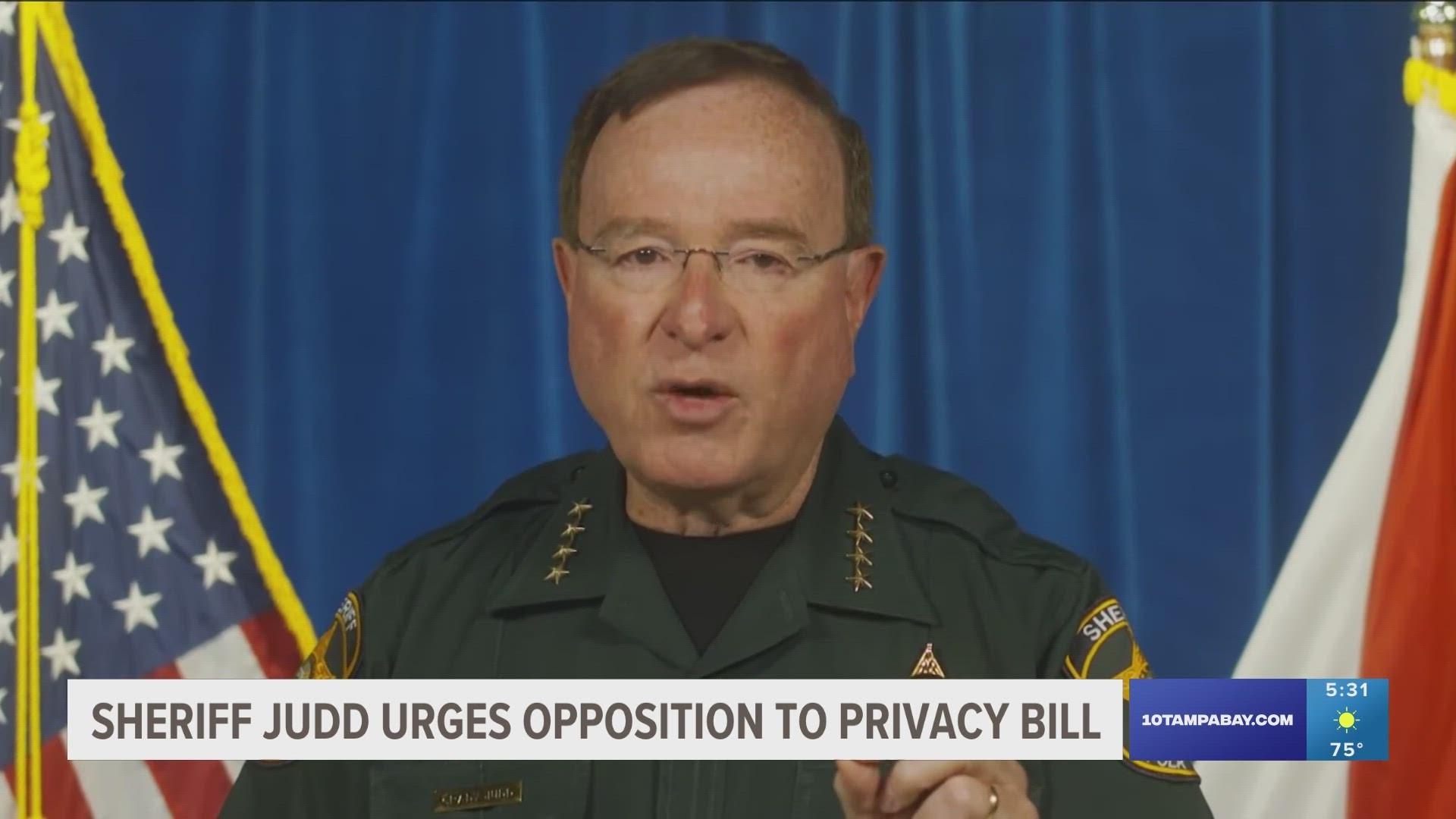POLK COUNTY, Fla. — Polk County Sheriff Grady Judd is often an outspoken supporter of the Second Amendment.
But this week, the sheriff is wading into debate over a different constitutional right — the Fourth Amendment — which protects privacy and unreasonable search and seizure.
The sheriff is a critic of the so-called "Fourth Amendment is Not for Sale Act," which is currently being debated in Congress.
Sheriff Judd says the sheriff's office and other agencies currently purchase records and data from communications and social media companies and that info helps them solve crimes.
The sheriff has now taken his message to social media, hoping to convince people to put pressure on their congressional representatives.
He says if the bill passes it, “Would strip law enforcement of important tools needed to keep you and your family safe.”
The act would prohibit government agencies, including law enforcement, from purchasing subscriber records, data or information gathered and stored by entities like social media and phone companies.
“Information that anyone and everyone has access to,” the sheriff argues. “Including the criminals, would no longer be accessible to law enforcement for investigative purposes.”
But critics say purchasing data is a modern-day work-around to obtaining a search warrant.
And while it's true private companies and even individuals can purchase similar information, government agencies must follow the Fourth Amendment, critics add.
“It's long been an objection to due process in a variety of contexts is that it makes it harder to throw people in jail or to violate their civil rights,” Congresswoman Mary Gay Scanlon (D-Pennsylvania) said.
The bill has bipartisan support.
Liberal lawmakers say it's a matter of civil rights. Conservatives are critical of intelligence agencies, who they say weaponize such data.
Still, Judd asks: “Why would any member of Congress vote to protect criminals rather than you the law-abiding citizens?”
While Sheriff Judd is popular and influential, he may find his position on this particular topic to be a hard sell.
In December, public opinion and data company “YouGov” conducted a survey and found nearly 80% of people want Congress to strengthen privacy against government surveillance.
They also found about the same number believe there should be a law requiring a warrant before purchasing personal data.
If passed, the same law would also prohibit government agencies from purchasing the information from a third party.
Also, if a person's information is illegitimately obtained, or even provided to law enforcement, it would not be admissible in court or at any other government proceeding.

